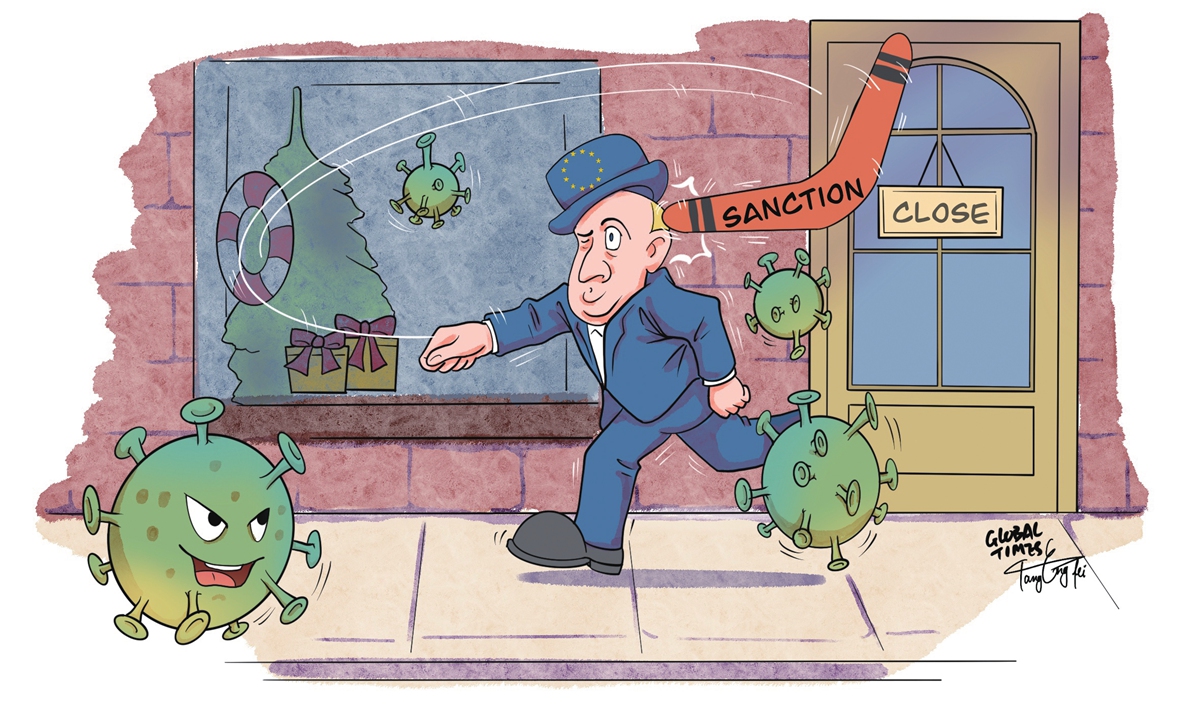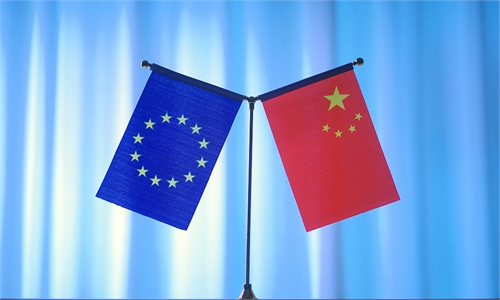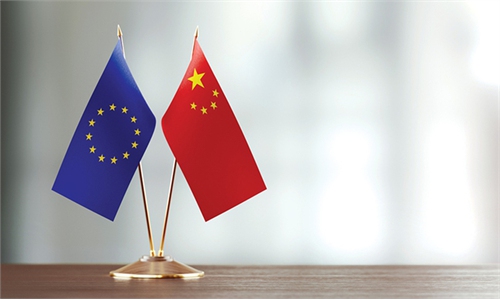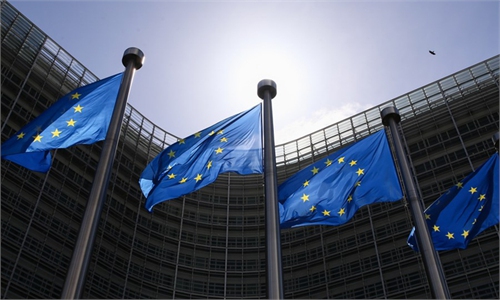COMMENTS / EXPERT ASSESSMENT
Prolonging ‘human rights’ sanctions to backfire on EU’s recovery

Illustration: Tang Tengfei/Global Times
The Council of the EU on Monday announced its decision to prolong its so-called sanctions against individuals and entities alleged to be responsible for "human rights violations" until December 8, 2022, in which four Chinese individuals and one Chinese entity were included in a series of baseless accusations centered on "violating human rights" in Northwest China's Xinjiang Uygur Autonomous Region.The move reflects an increasingly rabid tendency of Western countries wielding ideological rhetoric and lecturing others on "human rights." Also, by interfering in China's internal affairs under the guise of human rights, the West mainly intend to demonize the image of China so as to contain the country's development.
The unilateral sanctions imposed by the EU on Chinese individuals and entities will undoubtedly cast a shadow over the development of China-EU relations, under which the economic and trade exchanges may suffer the blows firstly. However, a cooling of ties with China is not good news for the European bloc which has been struggling badly in the recession quagmire.
Compared to other major economies in the world, the EU has made underwhelming progress in its recovery from the COVID-19 pandemic. Now facing a fourth wave of infections and the new variant of Omicron across the world, some European countries have again chosen to implement lockdowns before the Christmas spending season.
Still, the EU's public health agency warned on Thursday that the Omicron variant could be responsible for more than half of all COVID-19 infections in Europe within a few months, according to reports.
In addition to diminishing hope of a bumper holiday season, much more serious challenges facing the EU bloc include strained supply chains, aggravated risk of inflation, labor shortages, amongst other risks.
Besides all the uncertainty threatening the bloc's recovery, what is certain is that economic and trade exchanges with China have been contributing to its recovery. In 2020, China surpassed the US for the first time to become the largest trading partner of the EU; among the European bloc's top 10 trading partners, China was the only one that saw trading growth with the EU despite the pandemic.
In the meantime, greenfield investment from China in the EU surged to the highest level since 2016, reaching 130 million euros ($146 million) and accounting for 7.5 percent of the total greenfield investment across the bloc. The unrivaled Chinese market and Chinese investment going global have contributed to the economic recovery in Europe and the increase of jobs in European countries.
Without the support of huge Chinese demand and large Chinese investment in Europe, the recovery of the fragile eurozone economy will only get tougher.
In fact, both China and the EU are vital poles on the international stage, given that China is the largest developing country and emerging economy in the world, and the EU is the largest group of developed countries. Together, the two account for one-third of the total global economy and one-fourth of the world's population.
As two vital powerhouses, markets and cultures, enhancing ties will not only help the two economies to complement each other, leverage each side's comparative advantages and improve the livelihoods of both peoples, but also will boost confidence and vitality of the global economy.
Though the EU has seen an accelerating trend of politicizing economic ties with China, including interrupting the ratification process for the mutually beneficial China-EU Comprehensive Agreement on Investments, we suggest that European politicians could think clearly, put the short-sighted political stunts to rest, and deliver tangible interests to European firms and people.
The article was compiled based on an interview with Li Gang, an associate research fellow at the Business School of Wenzhou University. bizopinion@globaltimes.com.cn



